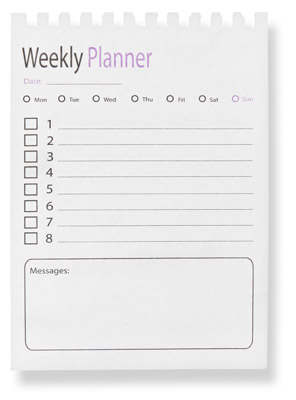How to Increase Your Income By Working Smarter, Not Harder
 When you hear the phrase “time is money” you may not think much of it, but if you really stop and think about it, you’ll realize how much this simple phrase is a fundamental truth of business. What you spend your time on during your workday will directly affect your bottom line.
When you hear the phrase “time is money” you may not think much of it, but if you really stop and think about it, you’ll realize how much this simple phrase is a fundamental truth of business. What you spend your time on during your workday will directly affect your bottom line.
When you finally grasp this idea, you’ll realize that figuring out to manage your time is as important, if not more so, as figuring out how to manage your money. If you can organize your day so that you produce twice as much in the same amount of time, you’re effectively doubling your income. If you can then figure out how to do all of that new work in half the time, congratulations! Your original income has now quadrupled thanks to effective time management.
If you’re the kind of person who considers time spent organizing as time that could be better spent working, sit down and think about how much time you spend between tasks trying to figure out what to do next. Think about how many times you could have done a task for a later project at the same time that you did a task for a current project, but because of poor organization you didn’t realize it until the opportunity had passed. Consider how many admin tasks have been mishandled or forgotten altogether because they weren’t collected in an organized manner.
The truth is, time spent organizing will be made up for tenfold when you get your business streamlined and working like a well-oiled machine. So how do we get organized? Excellent question! To begin, work out a rough idea of what you need to get done each day of the week. The plan might look like this:
- Monday – Tie up late projects/Deal with any work generated from the weekend
- Tuesday – Uninterrupted work day
- Wednesday – Conference calls, meetings, etc.
- Thursday – Uninterrupted work day
- Friday – Finish up work from Tuesday/Thursday and begin planning for Monday
Your plan will likely be different and probably more complicated, but however you plan it, it should give you the optimal time to get done the things that you need to get done.
So what’s next? Well, once you’ve figured out the structure of your week, it’s time to begin filling the structure of your day. Organize your work schedule into 90-minute blocks of uninterrupted work followed 20-30 minute breaks for the best productivity.
Each night, make a list of the tasks that you absolutely must get done the next day. Be realistic with yourself about time constraints. If you “have to” finish four projects that are each going to take 4-5 hours, your day is going to be a complete failure and your morale is going to suffer. Spread those projects out across two (or even three) days and give yourself a more realistic timeline.
Finally, be protective of your work hours. If a client wants to have a call on Monday, tell them that you take calls on Wednesday. If a friend calls and you’re in the middle of a project, ignore the call. They will surely understand when you call back later and explain how busy you were. You may view these a tiny distractions, but if you allow yourself to notice them, you’ll find that it’s the end of the day and you’ve accomplished nothing.


Latestpost
14
Jul
Factors That Can Help First-Time Borrowers Establish Credit
It is one thing to have bad credit in today’s wo ...

Download our
FREE GUIDE
and get weekly money-savings tips!
KnowledgeBase
Essentials




